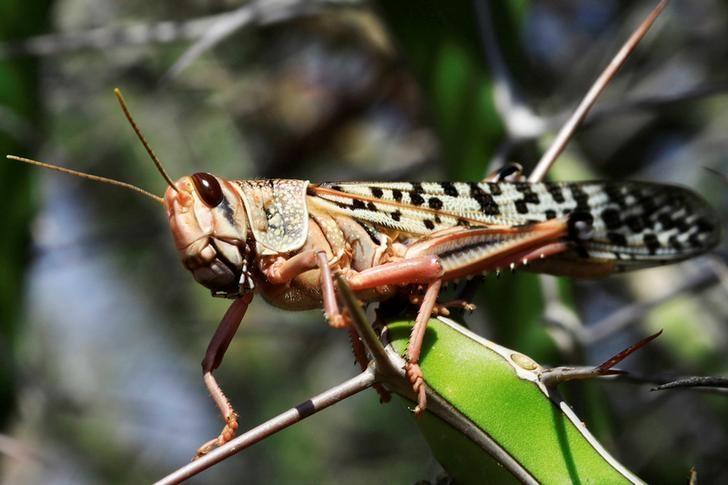
"The locust plague could be as dangerous as the coronavirus pandemic," he said, adding that the swarms had already invaded Ghotki while the Centre did little to eradicate them. As a result, the provincial agriculture department had to make arrangements for aerial spraying, he claimed.
The minister said that locust swarms had descended upon the entire desert region in Sindh and thousands of acres of land in those areas now bore locust eggs and larvae.
Pakistan would now not just have to deal with the pandemic but locust swarms as well, he said.
According to Rahoo, the locust plague can only be dealt with via aerial spraying, which is the federal government's responsibility. He said that the Ministry of Food Security had pledged to carry out an aerial spraying drive in the first week of April but the promise had remained unfulfilled thus far.
He said that following aerial spraying in Sindh, disinfectants would also have to be sprayed in Balochistan, where locusts were likely to harm cotton, corn and other food crops.
Saying that monsoon was when the locusts bred, Rahoo criticised the Plant Protection Department for its laxity. "It should shut down if it cannot work (properly)," he remarked, adding that Sindh had already witnessed a loss due to the federal government's negligence last year and the province could not "ignore the potential loss to be caused by locust swarms this time around."
Published in The Express Tribune, April 13th, 2020.

















COMMENTS
Comments are moderated and generally will be posted if they are on-topic and not abusive.
For more information, please see our Comments FAQ